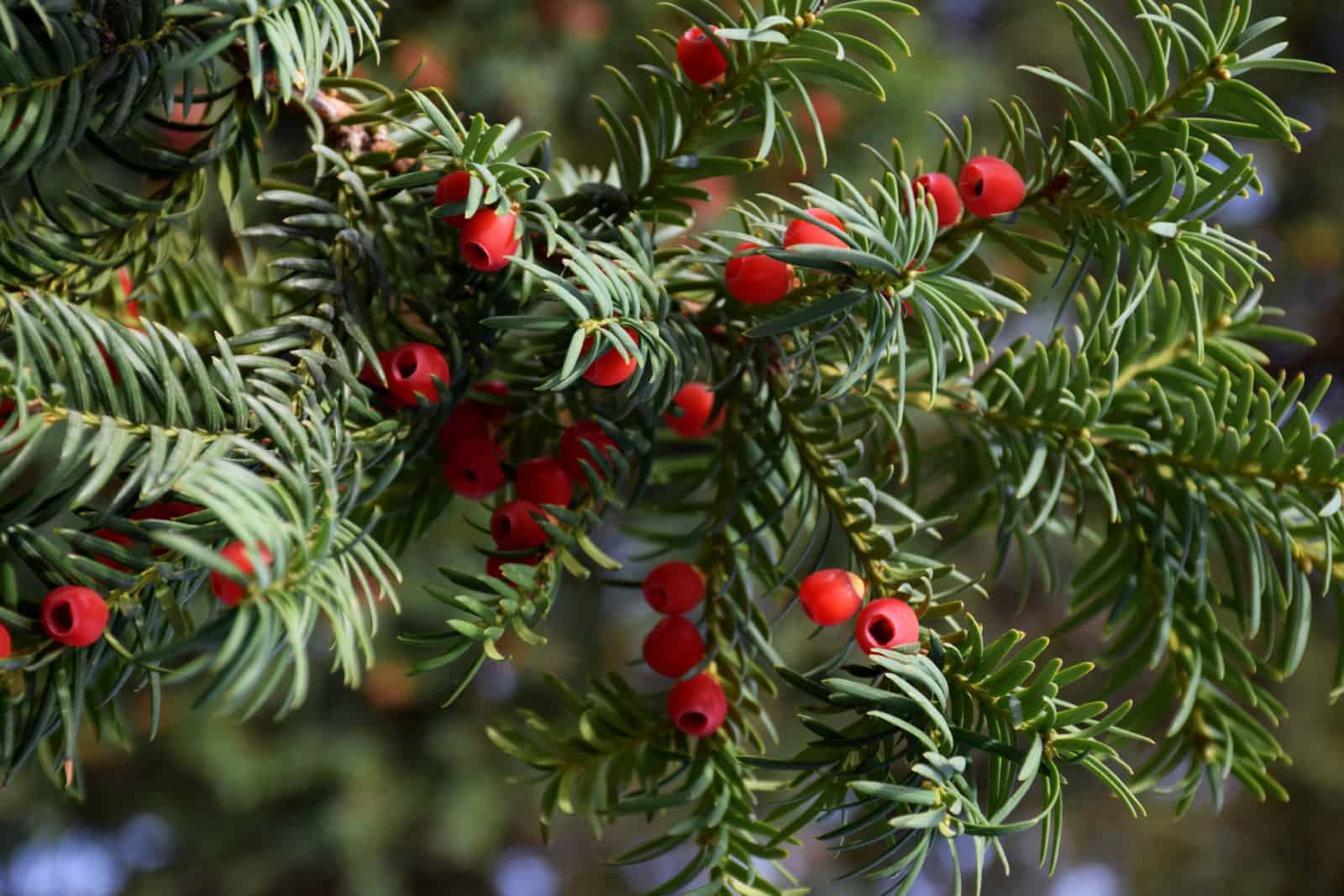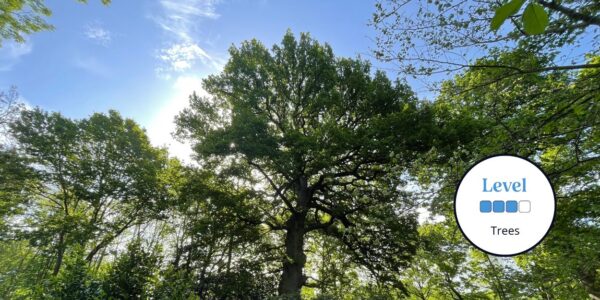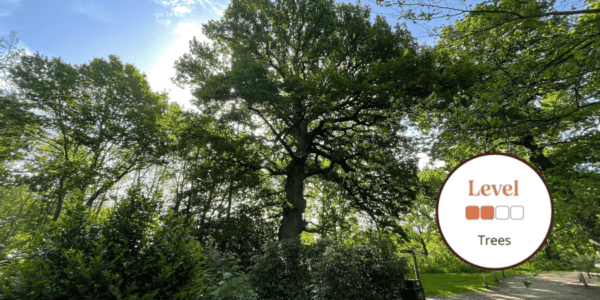This weekend botanical tree course will equip you with the skills needed to confidently identify conifer trees; focusing on accuracy and diagnostic features.
You will get to grips with different keys to identification, beginning by considering the key features of the different families and genera of conifers, studying specimens of different cones and foliage, and practising looking for appropriate characters to confirm the species. All with the close support and guidance of our expert tutor. Winter, when most of our native plants have lost their leaves and there are few flowers, offers a wonderful opportunity to focus our attention on the conifers – most of which are evergreen and still bear cones.
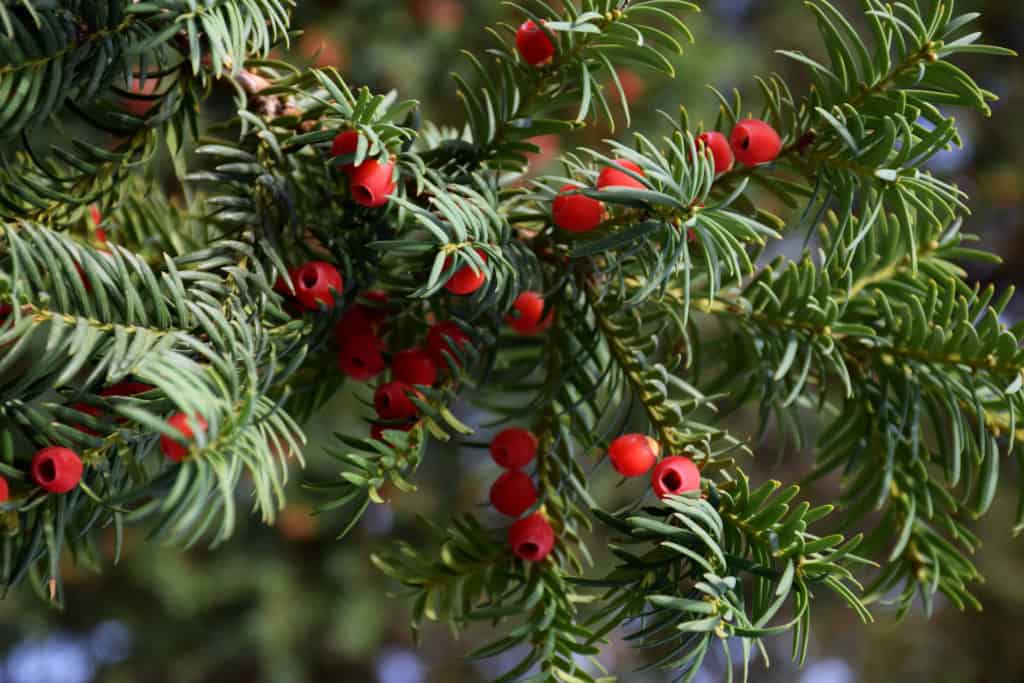
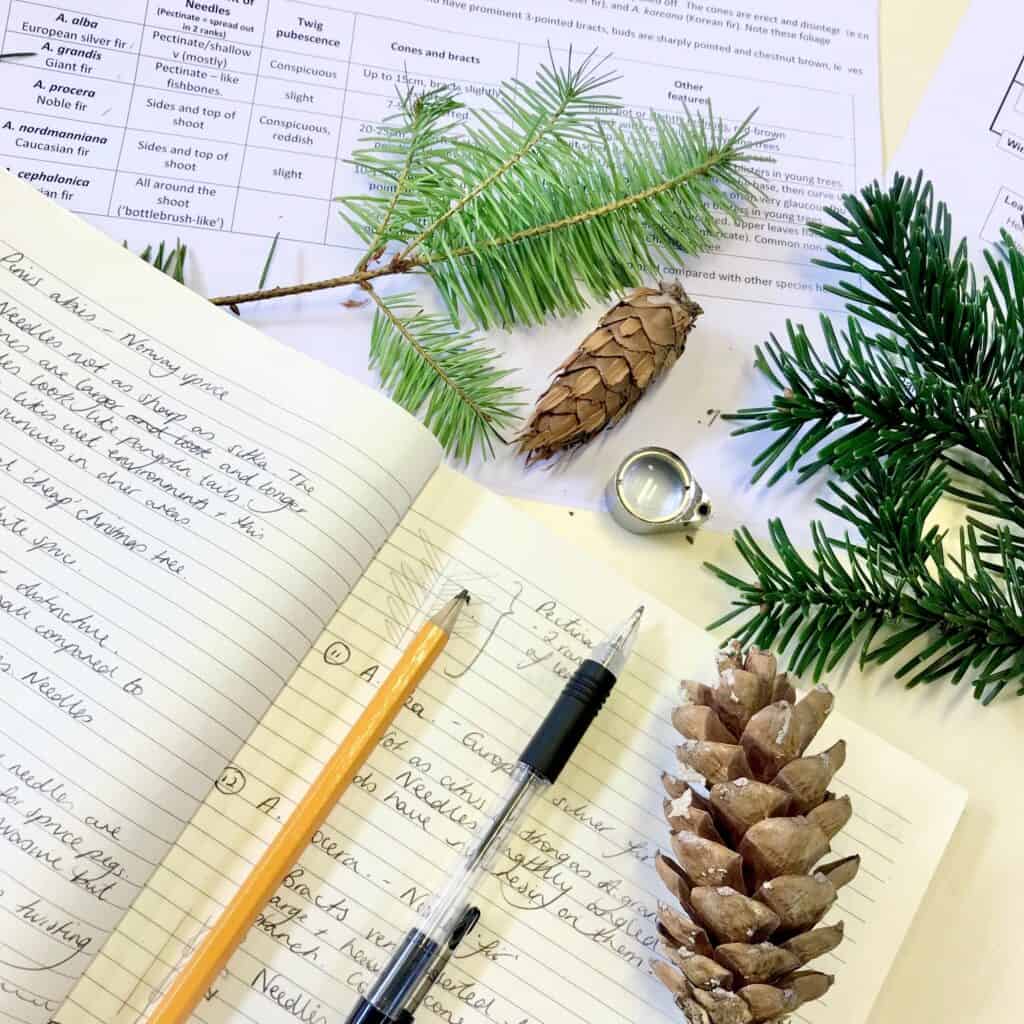
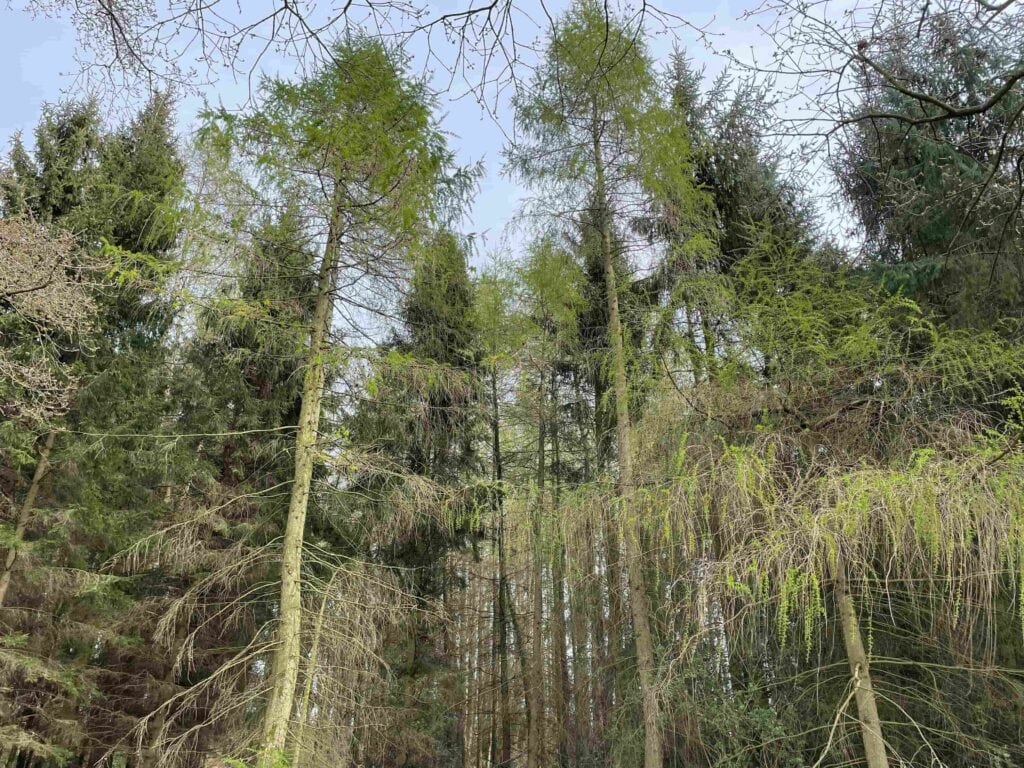
Read More
Trees and associated shrubs make up an obvious feature of the British landscape, from lowland heath-land species, to upland and montane forests rich with bryophytes and lichens. British flora is remarkably poor in diversity of native conifers but many introduced species are a major feature of our landscape. However, our native and non-native trees are coming under direct threat from a number of challenges: climate change, pollution, development of ancient woodland sites, and a number of diseases and pests. Government agencies, forestry companies, conservation charities and other organisations are undertaking widespread planting schemes to counteract this. The challenge ahead is ensuring that this is sustainably done, utilising appropriate species and sites – a sound understanding of conifer trees and their identification will be key to this.
What will be covered during this course?
- The course will be delivered through a combination of seminars, laboratory identification sessions and practical field work.
- Identifying a range of woody plant species in the field and in the lab.
- Systematic approaches to identification using dichotomous keys.
- The problems of challenging taxa such as Pinus, Picea, Abies and others.
- How to record and deal with these groups individually and also as part of recording schemes.
- Techniques for collecting voucher specimens for validation. Problems with bulky species. The importance of collecting vouchers for identification. Use of collector and determiners.
- The use of referees and the validating system for difficult higher plant groups. The Botanical Society of Britain and Ireland and their system of vice-county recorders and referees who can give a determination for species.
- Awareness of published resources for identification; i.e. handbooks, cribs, general guides, online.
By the end of the course, you will be able to:
- Compare and contrast the major Coniferous families, distinguishing between them and identifying a selection of common species using a range of dichotomous keys.
- Evaluate the role that Coniferous Trees have as ecological indicators and their use in indicating habitat type.
Who Should Attend? Natural history enthusiasts, students, rangers, ecologists, and environmental professionals. This intermediate level course is open to anyone with some knowledge of the subject. This course is for those aged 18 and over only.
Knowledge Level – Intermediate. Level descriptors can be found on the following web-page: Framework and Course Level Descriptors
Your learning will take place within the 12-hectare estate of the Preston Montford Centre, nestled in the heart of Shropshire and surrounded by a rich range of habitats, including the River Severn and semi-ancient woodland.
There are two booking options which all include course tuition, meals and refreshments:
- Non-Resident (Breakfast not included)
- Resident (Sole Occupancy)
For course bookings including accommodation please note bathroom facilities may be shared.
MMU Student Information
MMU students – please email [email protected] to book your course place.
Accreditation
This is one of a series of courses (Units) run jointly with Manchester Metropolitan University (MMU) contributing to the MSc Biological Recording and Ecological Monitoring and the Postgraduate Certificate in Biological Recording. MMU students complete assessed work after the course. For further details about Manchester Metropolitan University degree programmes please contact:
Department of Natural Sciences, Manchester Metropolitan University, (Shrewsbury Office). Email: [email protected]
See the ‘Example Timetable’ and ‘What’s Included’ sections below for more information about this course.
Upon booking you will need to provide individual details of all attendees.
Please email [email protected] if you have any questions.
Assessment
For Manchester Metropolitan University students, the Unit will be assessed through, for example, identification tests, survey reports, field journals, production of keys, essays or other forms of assessment. In course tests are optional and less formal for participants who are not MMU students.
MMU students will be required to complete a portfolio comprising of two parts:
Part 1: At the end of the course a test with a range of specimens. Points awarded for correct identification, and critical comparison between specimen and superficially similar/related species. (Numbers, groups and presentation will be covered by the tutor over the teaching weekend) (Equivalent to 500 words).
Part 2: Collect a range of either Conifers or Broad-leaved species (choice to be decided by tutor). Create voucher specimens, with full biological records. Key diagnostic features to be listed for each species, comparing and contrasting how these differ from analogues species (these can be presented on the voucher specimen or separately as detailed notes). Design and construct a dichotomous key to your collection of specimens selecting strong taxonomic characters, that distinguish them from other species within the collection. (1500 words).
Example Timetable
This timetable is subject to change but should give an outline of what to expect.
If you have booked accommodation with the Centre your bedroom will be ready from 3.00 pm onward on the day of arrival and we ask that you vacate by 9.30 am on the morning of departure.
If numbers are sufficient a station pick up will be arranged at 5.30 pm from Shrewsbury Station.
Please arrive in time for the evening meal at 6.30 pm on Friday
The course starts after dinner with a classroom session 7.30 pm - 9.00 pm
The course ends at 4.00 pm on the final day.
Time will be made available for eating packed lunches during the day.
Friday:
The course starts after dinner on the first day with an evening classroom session: introduction to course; overview of what makes a conifer; identification using ‘cones’.
Saturday:
Morning
Looking at vegetative identification features; using keys to identify species (a range of keys and resources will be shown) - working in groups and individually.
Afternoon
After lunch, a visit to Nesscliffe Woods is undertaken to view a range of species in the field and identify them using keys and resources.
Evening
View a range of plant material from different groups (e.g. Pinus, Picea, Abies etc.) - working in small groups/individually.
Sunday
Meet in classroom. Review any features as required for an hour.
Leave for the Royal Forestry Society – Charles Ackers Redwood Grove and Naylor Pinetum in nearby Welshpool.
Summary session back at field Centre.
What's Included
- Classroom learning covering the theory of the subject
- Field excursions to apply new knowledge
- Expert tuition for which we are renowned
- Clear objectives and progression
- All meals provided
Bursaries and Subsidies
Natural History Bursaries
There are a number of natural history bursaries available to help with the cost of your course. To find out if you and your chosen course are eligible, read more here.
Before You Attend
There will be a member of staff with first aid training and access to a first aid kit on site. If you have special medical or access requirements, please let us know as soon as possible so we can make any necessary adjustments.
What to Bring
Please bring the following with you if you can:
- Hand lens (x10 magnification) - can be borrowed from the Centre.
- Appropriate casual clothing.
- Stout shoes or boots (wellies can be borrowed from the Centre).
- Waterproofs (just in case!) – these can be borrowed from the Centre.
Small rucksack or bag. - Lunchbox, water bottle and/or thermos flask.
- Notepad, pens and pencils.
- Binoculars if you have them.
- Clear plastic ruler (available to borrow from the centre).
Recommended Reading
- Stace C.A. New Flora of the British Isles 4th Ed. (2019). C&M Floristics.
- Johnson, O. and More, D. Collins Tree Guide (2006) (or others) for trees.
Opportunities to attend this course
-
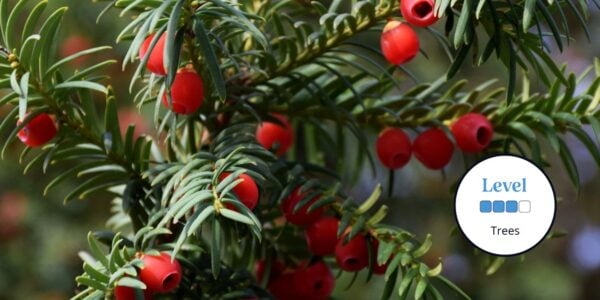
Fri 18, October 2024 18:30 - Sun 20, October 2024 16:00
MMU students - please email [email protected] to book your course place.
Progress Your Learning
This is a training course from the Field Studies Council, delivered by expert tutors with an approachable learning style. After attending this course, you may like to progress your learning with further relevant courses or branch out into other areas of natural history. The Field Studies Council offers both online and in person courses, so you can choose the learning style that suits you best.
The course gives you the opportunity to immerse yourself in a new subject and acquire novel skills. Our online portal gives you time to study at your own pace and fit the lessons around your own schedule.
If you have any questions about our online courses please check our Frequently Asked Questions
Please email [email protected] if you have any questions.
Group Bookings Made Easy
If you have a group of 10 or more individuals wanting to complete one of our courses, our team are available to discuss your options – from discounts to private team courses. Find out more!
You can rest assured that the absolute best content from an expert in environmental education will be at your fingertips. In choosing a Field Studies Council course, you will be joining thousands of people who learn with us each year.

